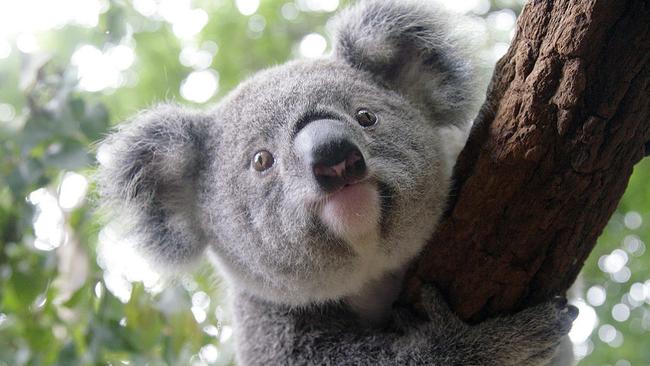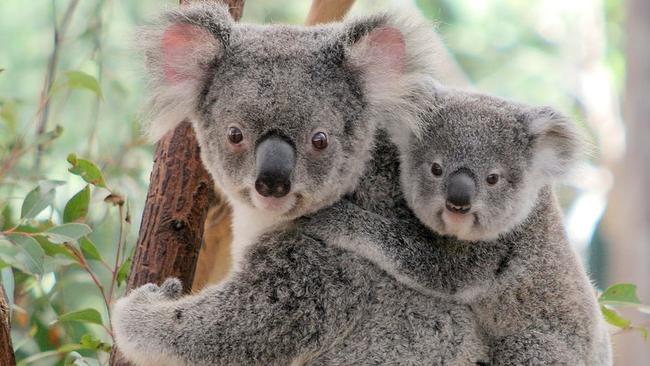Fears of koala wipeout as hundreds face lethal injection
MOST injured koalas taken to this Brisbane RSPCA wildlife hospital don’t make it out alive and there are new fears the marsupial may be wiped out in the region.

QLD News
Don't miss out on the headlines from QLD News. Followed categories will be added to My News.
HUNDREDS of koalas are being sentenced to death by lethal injection as Queensland’s wildlife crisis deepens.
Most injured koalas taken to the RSPCA wildlife hospital at Oxley in Brisbane do not make it out alive and there are new fears the cuddly Australia marsupials may be heading for extinction.
Of the 323 koalas taken to the hospital in the past 12 months only 80 were returned to the wild, RSPCA spokesman Michael Beatty said.
“They died of their injuries or had to be euthanised,” he said.
“It is very disturbing.”

Many had been hit by cars, savaged by dogs or shot.
He said despite the best efforts of animal ambulance rescue teams and volunteer carers he believes the species may not survive in the Brisbane region.
“The koala population is still in serious decline,” Mr Beatty said.
He blamed loss of habitat, the increasing number of households with pet dogs and a growing number of cars.
One koala at Redlands had been taken to the hospital for three surgeries after being attacked by dogs and hit by a car.
Stress can leave koalas with chlamydia, a disease that can cause blindness and infertility.
Koalas now posed a lesser problem to the RSPCA than other animals simply because of their diminishing numbers, Mr Beatty said. The plight of the koalas was part of a much wider problem, with the wildlife hospital overflowing, he said.
In four years admissions jumped from 8500 to 22,000, he said.
A team of three surgeons and four veterinarian nurses were overwhelmed with work.
There were dozens of cases of kangaroos and wallabies with smashed bones and internal injuries.
And there were injured possums, echidnas, birds and reptiles including snakes, lizards and turtles.
Life and death decisions were made daily.
If vets considered an animal would not be able to fend for itself if returned to the wild, it was given a lethal injection.
In a recent rescue a pelican was sedated while it had seven fish hooks removed.
“It had swallowed three and had four more on the outside entangled in fishing lines,” Mr Beatty said.
“Fortunately it survived. That was amazing.”


